When Every Day is Saturday: How Much to Save for Retirement
By Kelsey Lyman, Director of Operations
“Can I retire?” is a loaded question. The answer? It depends. Usually the answer is yes, but maybe it’s yes to a lower standard of living than the pre-retiree expects. Retirement isn’t a one-size-fits-all phase of life. There are many approaches in the 21st century, ranging from full retirement at 50 to working a part-time job indefinitely. Since those are ends of a spectrum with many other possibilities, what constitutes retirement readiness is different for everyone as well. In this blog, we’ll walk through the considerations in retirement planning and how to time the transition to fit the lifestyle you desire.
Set Goals for Retirement
While seemingly basic, goal setting is one of the first steps of the retirement planning process. It’s frequently touched on in professional development courses and self-help programs for a reason! When you know what you want to include in your future, it makes it easier to map out how to get there.
Retirement goals and plans look different for everyone. Do you want to leave a legacy to children and grandchildren or spend every dollar during your lifetime? Does quitting your job cold turkey excite you or fill you with dread? Do you plan to buy a new sportscar every year or does the old Honda Civic work just fine?
Other decisions, like gradually phasing out of employment, can offer extra benefits, like continued health insurance or additional income to supplement savings.
Some other topics to consider include:
- Do you plan to downsize your home or buy a vacation home?
- How long do you and your spouse plan to work? Do you plan to make a career change to a lower-stress part-time job?
- What city do you want to live in? Is the cost of living more or less than where you currently live?
- How frequently do you want to travel?
- Do you anticipate health issues later in life or does your family have a history of longevity?
These, along with many other considerations are what build the foundation for your retirement plan. Retirement should be a time to enjoy the fruits of your labor, and with proper planning, that’s possible.
Estimate Your Annual Spending
Ultimately, determining if you’re “ready” to retire includes estimating how much you think you’ll spend in retirement and assessing if your financial resources can support that level of spending. In calculating those spending levels, it’s best to be as realistic as possible with how much expenses will be.
If you’ve always pictured your retirement as a time to live extravagantly, your expenses will look different than someone who plans to live more frugally. There’s no “right” or “wrong” way to live in retirement, but being honest with yourself and realistic about your spending levels gives you a better idea of how much you should save before retiring.
Some questions to ask yourself when considering spending in retirement:
- What’s your existing standard of living?
- Do you anticipate spending more or less in retirement?
- When every day is a “Saturday”, does that raise or lower expenses?
- Have you considered what your tax situation will be in retirement?
We suggest creating a budget (or working with an advisor to create a budget) that realistically estimates what you currently spend and what you think you’ll spend once retired.
Make Strategic Choices to Fund Your Retirement
Now that you have a good picture of how much you’ll need to retire, it’s time to figure out how to make that happen. There’s a myriad of ways to fund retirement. Often, there are income streams in retirement that help fund your lifestyle, which may decrease the amount of money needed in savings and investments before retirement.
Some retirement income-related questions to answer for yourself:
- Will you have a pension of any kind?
- Do you have enough in investment accounts to supply the income your budget shows you’ll need?
- Will certain decisions (such as waiting to take Social Security or opting for certain pension elections) make a big difference in how much income you’ll receive in retirement?
- Are you currently contributing to retirement accounts, and are you considering how those contributions will impact your future tax situation?
Habits and Attitudes in Retirement
Additionally, there are habits you can form in retirement that can stretch your savings further.
Our best advice is to control what you can control, and not worry about the rest.
Controlling what you can control might include taking income from your investments when markets are up and being more frugal when markets are down.
Ultimately, your retirement plan should allow you to sleep at night and make adjustments as needed. Don’t stress too hard about getting it perfect. Good planning should allow for some flexibility.
Once you determine what your income streams will look like in retirement, you should have a solid understanding of what it takes to be ready for your life of Saturdays. The above are basic considerations of a retirement plan, and a financial advisor can help achieve greater accuracy and find opportunities to strategize further. For example, advisors can calculate which investment accounts to fund first, what to invest in before and after you retire, and will consider market movement and inflation when determining how much to save for retirement.
It’s important to have these questions answered before deciding to retire. Your retirement plan provides confidence and assurance that you can enjoy your retirement to the fullest.
The opinions voiced are for general information only and are not intended to provide specific advice or recommendations for any individual.



